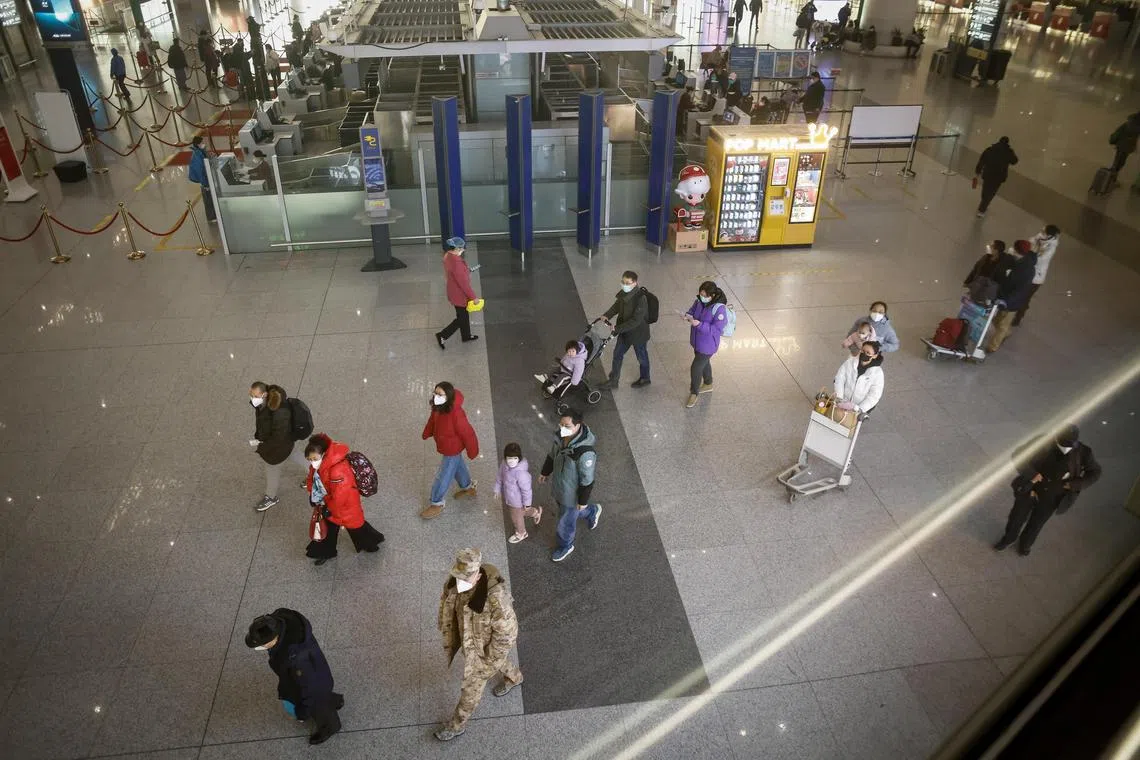EU to discuss coordinated response to China’s Covid-19 situation on Wednesday
Sign up now: Get ST's newsletters delivered to your inbox

Travellers at Beijing Capital International Airport on Jan 1. China is poised to lift travel restrictions on Jan 8.
PHOTO: EPA-EFE
BRUSSELS - European Union government health officials will hold talks on Wednesday on a coordinated response to the surge in Covid-19 infections in China,
They follow similar talks in December,
The Dec 29 meeting was held online among more than 100 representatives from EU governments, EU health agencies and the World Health Organisation.
During those discussions, Italy urged the rest of the EU to follow its lead and test travellers from China for Covid-19, with Beijing poised to lift travel restrictions on Jan 8.
But others in the 27-nation EU said they saw no need to do so despite China’s decision to loosen its pandemic restrictions amid a wave of new infections.
“There is a scheduled Integrated Political Crisis Response meeting on Wednesday, January 4, for an update of the Covid-19 situation in China and to discuss possible EU measures to be taken in a coordinated way,” a spokeswoman for the Swedish presidency of the EU said.
The European Health Commissioner Stella Kyriakides said in a letter to EU governments on Dec 29 they should consider immediately scaling up genomic sequencing of Covid-19 infections and monitoring of waste water, including at airports, to detect any new variants, given the surge in infections in China.
Ms Kyriakides said the bloc should be “very vigilant” as reliable epidemiological and testing data for China are scarce.
She advised EU health ministers to assess their current practices on genomic sequencing of the coronavirus “as an immediate step”.
The European Centre for Disease Prevention and Control said last week it did not currently recommend measures on travellers from China.
It said the variants circulating in China were already in the European Union, that EU citizens had relatively high vaccination levels and the potential for imported infections was low compared to daily infections in the EU, with healthcare systems currently coping. REUTERS


